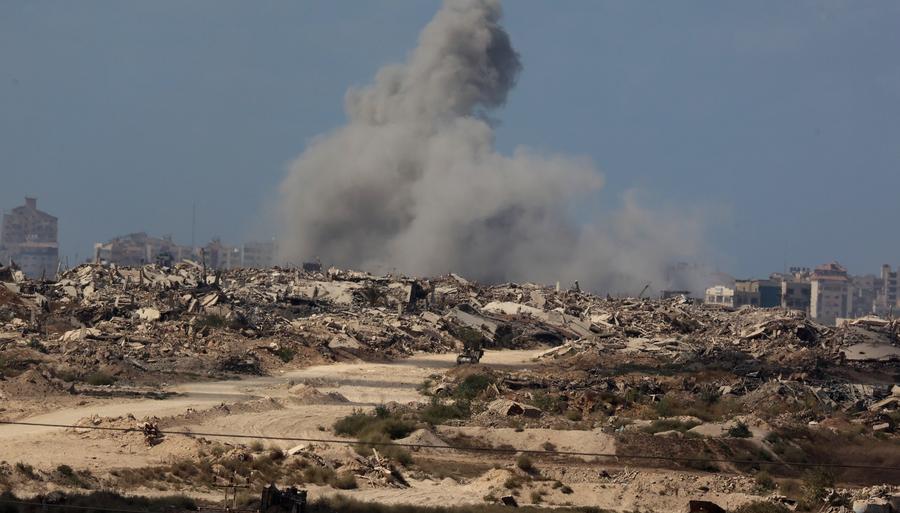Hamas Responds to U.S. Peace Proposal, Shows Signs of Flexibility
Saturday 04 October 2025 - 02:00pm
GAZA, Oct. 4 (Xinhua) -- After days of anticipation, Hamas has delivered its response to the U.S. peace proposal, signaling some flexibility from the militant group. The move, welcomed by international mediators, has drawn intense scrutiny in Gaza and abroad.
The response came after a dramatic ultimatum from U.S. President Donald Trump, who gave Hamas until Sunday evening to accept his 20-point proposal or face the prospect that "all hell will break loose."
The plan calls for a ceasefire, a phased Israeli withdrawal, international oversight of reconstruction, and the release of hostages within 72 hours. In exchange, Israel would free Palestinian prisoners, and Hamas fighters who disarm could receive amnesty or safe passage.
In a statement on Friday, Hamas said it had agreed in principle to release all Israeli hostages and was ready to open talks through mediators. It endorsed transferring Gaza's administration to a technocratic Palestinian authority backed by Arab and Islamic states, while praising regional and international efforts to prevent further displacement and avert reoccupation.
Hours later, Trump declared that Hamas's response showed it was "ready for a lasting peace" and urged Israel to halt its bombardment "so we can quickly and safely extract the hostages." Qatar, Egypt, Türkiye, and the Palestinian Authority in Ramallah also welcomed Hamas's statement, hoping it would become an important step toward a ceasefire as the conflict nears its two-year mark.
But analysts stressed that Hamas's language was deliberately measured and ambiguous. The group said broader political questions about Gaza's future and Palestinian rights would be decided collectively and "in line with international resolutions" -- an acknowledgment of the U.S. plan without binding concessions.
"It's a tactical retreat, not a strategic surrender," said Esmat Mansour, a Ramallah-based political analyst. "Hamas highlighted positive points like prisoner exchanges and civilian administration, while avoiding sensitive issues such as disarmament."
That balancing act reflects Hamas's effort to ease pressure after nearly two years of devastating war while preserving its political legitimacy. Tayseer Abdul, a researcher in Gaza, said the response was less about embracing Trump's blueprint than about "buying time under fire" and safeguarding Hamas's role in any future settlement.
Israel, meanwhile, reacted warily. Despite Trump's call to halt strikes, Israeli forces pressed on with operations in Gaza City.
Officials insisted any agreement would require ironclad security guarantees and strict monitoring to prevent Hamas from rearming. Israeli media reported the government would assess Hamas's response based on enforceable commitments, stressing it "cannot accept mere words."
While Israel's Army Radio reported some military activity was being scaled back, airstrikes continued across the Strip: a stark reminder of how fragile the diplomatic opening remains.
For Gaza's 2.3 million residents, high-level negotiations feel distant from daily life. After two years of war that have killed more than 67,000 Palestinians and devastated most of the enclave's infrastructure, hope is scarce.
"We hear about understandings and truces, but the planes never leave the sky," said Mohammed Abu Rayala, 46, standing amid the ruins of his home.
The skepticism runs deep. Ibrahim Abu Shawish, in al-Nuseirat camp, voiced a common sentiment: "People only want a real truce. We are not concerned with American plans or political negotiations. All we want is one day without bombing."
Mediators now face the daunting task of bridging Hamas's bid for survival, Israel's non-negotiable security demands, and the overwhelming humanitarian crisis in Gaza. A diplomatic opening has emerged-but it is fragile, and it exists against the unrelenting backdrop of war. ■
